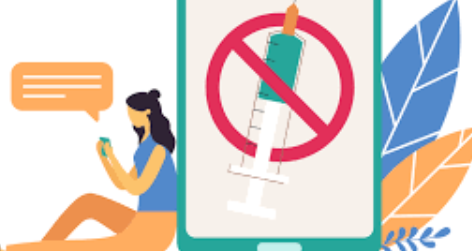Coping Mechanisms for Managing Triggers During Drug Rehab

Addiction is a chronic disease that affects millions of people worldwide. Triggers are events, people, or situations that can provoke intense cravings and lead to relapse. Coping mechanisms are essential tools for managing triggers and achieving long-term sobriety. In this blog, we will explore coping mechanisms for managing triggers during drug and alcohol rehab.
Understanding Triggers in Drug and Alcohol Rehab
Triggers are internal or external stimuli that cause individuals to crave drugs or alcohol. They can include stress, anxiety, depression, social situations, or environmental cues. Identifying triggers is crucial in understanding the root cause of addiction and developing coping mechanisms to manage them.
Coping Mechanisms for Managing Triggers
Developing healthy habits and routines:
Creating a routine that includes healthy habits such as eating well, exercising regularly, and getting enough sleep can help manage triggers.
Practicing mindfulness and meditation:
Mindfulness and meditation can help individuals become more aware of their thoughts and emotions, allowing them to manage triggers more effectively.
Engaging in physical activity and exercise:
Physical activity and exercise can release endorphins, which are natural mood-boosters and can help alleviate cravings.
Utilizing relaxation techniques and stress-management strategies:
Techniques such as deep breathing, yoga, and progressive muscle relaxation can help individuals manage stress and anxiety.
Seeking support from loved ones and professionals:
Seeking support from friends, family, or a professional therapist can help individuals manage triggers and develop coping mechanisms.
Implementing Coping Mechanisms in Daily Life
Strategies for incorporating coping mechanisms into everyday routines:
It is essential to make coping mechanisms a part of daily life. Developing strategies such as setting reminders, prioritizing self-care, and creating a support network can help individuals stay on track.
The importance of consistency and accountability:
Consistency and accountability are critical in maintaining coping mechanisms. Setting goals, tracking progress, and holding oneself accountable can help individuals stay motivated.
Reflection and evaluation of coping mechanisms:
It is essential to reflect on coping mechanisms regularly and evaluate their effectiveness. Adjusting strategies and seeking professional guidance can help individuals continue to manage triggers successfully.
Overcoming Triggers and Achieving Long-Term Sobriety
Building resilience and self-efficacy:
One of the key factors in overcoming triggers and achieving long-term sobriety is building resilience and self-efficacy. Resilience is the ability to bounce back from difficult situations, and self-efficacy is the belief in one’s ability to succeed. By building resilience and self-efficacy, individuals can develop the skills to cope with triggers and maintain sobriety even when faced with challenges. At Hawaii Rehab, we offer a range of evidence-based therapies, such as cognitive-behavioral therapy (CBT) and dialectical behavior therapy (DBT), that help individuals build resilience and self-efficacy.
Understanding relapse and how to prevent it:
Relapse is a common part of addiction recovery, and it is important to understand the warning signs and have a relapse prevention plan in place. Common triggers that can lead to relapse include stress, social situations, and negative emotions. Honu House Hawaii rehab provides relapse prevention education and helps individuals develop coping strategies to prevent relapse. Our programs also include ongoing support and aftercare services to help individuals maintain sobriety long after leaving treatment.
Celebrating progress and maintaining motivation:
Achieving long-term sobriety is a journey, and it is important to celebrate progress and maintain motivation along the way. At Honu House Hawaii rehab, we encourage individuals to set achievable goals and celebrate milestones, no matter how small. Celebrating progress can help boost motivation and provide a sense of accomplishment, which can be essential in maintaining sobriety. Our programs also provide ongoing support and resources to help individuals stay motivated and committed to their recovery journey.
Overcoming triggers and achieving long-term sobriety is possible with the right tools and support. By building resilience and self-efficacy, understanding relapse, and maintaining motivation, individuals can develop the skills to cope with triggers and maintain sobriety. At Hawaii Rehab, we provide evidence-based therapies, relapse prevention education, and ongoing support to help individuals achieve long-term sobriety and live a fulfilling life in recovery.
Conclusion
Managing triggers is a crucial part of addiction recovery. Coping mechanisms such as developing healthy habits, mindfulness, exercise, relaxation techniques, and seeking support can help individuals manage triggers effectively. Consistency, accountability, and reflection are essential in implementing coping mechanisms in daily life. Building resilience, understanding relapse, and maintaining motivation can help individuals achieve long-term sobriety. It is essential to seek professional help and support in managing triggers during drug and alcohol rehab.




